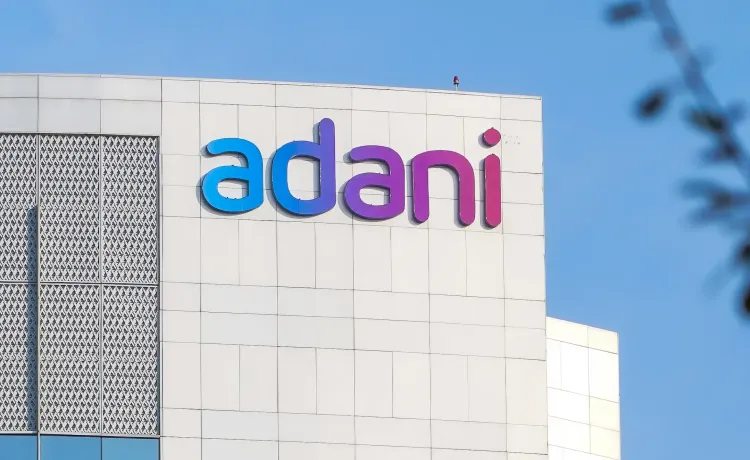Is Adani Group Leading the Charge in Battery Energy Storage with One of the World’s Largest Projects?

Synopsis
Key Takeaways
- 1,126 MW capacity BESS project by Adani Group.
- Expected to be operational by March 2026.
- Largest BESS installation in India and among the largest globally.
- Utilizes advanced lithium-ion technology.
- Aims to support India's energy independence.
Ahmedabad, Nov 11 (NationPress) The Adani Group has officially ventured into the Battery Energy Storage Systems (BESS) industry, unveiling an ambitious project boasting a capacity of 1,126 MW and 3,530 megawatt-hours (MWh), slated for commissioning by March 2026.
This groundbreaking project involves the deployment of over 700 BESS containers, positioning itself as the largest BESS installation in India and among the most extensive single-location BESS projects globally.
With a power capacity of 1,126 MW and an energy storage capability of 3,530 MWh, this project enhances power capacity by 3 hours.
“Energy storage is essential for a renewable-powered future. Through this historic initiative, we are not only establishing global standards but also solidifying our dedication to India’s energy independence and sustainability. This project will allow us to provide reliable, clean, and affordable energy solutions on a grand scale,” stated Gautam Adani, Chairman of the Adani Group.
With this strategic move, the Adani Group joins leading international energy firms in investing in large-scale storage infrastructure, marking a pivotal moment in India's clean energy evolution.
The company asserts that this strategic initiative significantly boosts India’s energy security, facilitating 24/7 clean electricity and aiding the nation’s transition towards a low-carbon future.
The BESS will be crucial in alleviating peak load demands, reducing transmission bottlenecks, and minimizing solar curtailment, which in turn enhances grid reliability and efficiency.
Currently, the project is at an advanced stage of deployment at Khavda, the world’s largest renewable energy facility, and utilizes cutting-edge lithium-ion battery technology, integrated with sophisticated energy management systems for optimal performance and reliability.
This deployment will assist in managing peak loads and energy shifting, thus playing a vital role in decarbonizing the energy sector.
The Adani Group aims to add another 15 GWh of BESS capacity by March 2027, targeting a total of 50 GWh over the next five years.









